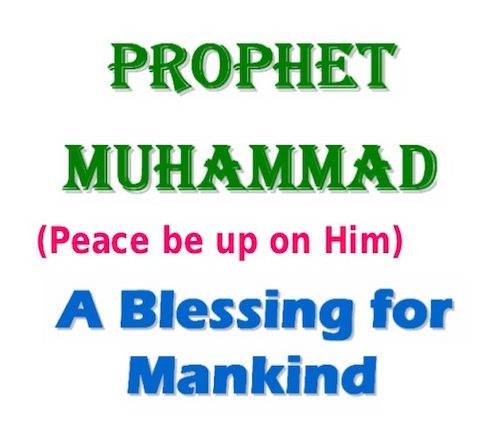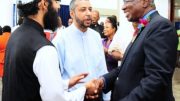Muslims in the Caribbean, South, and Latin America celebrated the birth of the Prophet Muhammad ﷺ on the 12th of Rabi ul Awal (The Hijri Calendar). In the Co-operative Republic of Guyana, it is a national holiday known as Youman Nabi. This year, the holiday was on September 16, 2024. The Central Islamic Organization of Guyana submitted the following article by Nazim Baksh to Guyana’s media. Two newspapers dedicated a page each to its publication.
Prophet Muhammad: A beacon for those who aspire to live a virtuous life
The birth of Prophet Muhammad (peace and blessings of Allah be upon him) over 1400 years ago was a remarkable event that changed the course of human history. For Muslims around the world, the occasion of his birth, observed as “Youman Nabi” in Guyana, is a time to rejoice and reflect on his noble character and universal message amidst a climate of fear, hate and wanton destruction of human life and property that is now casting an ominous shadow over our world.
God reveals in the Glorious Quran that Prophet Muhammad was sent as a mercy to all mankind. He reportedly said, “Those who show mercy will have God’s mercy shown to them. Have mercy on those on earth, and the One in Heaven will have mercy on you.” His mercy and his humanizing message of peace extend to everyone regardless of race, caste, colour, or creed.
Prophet Muhammad was sent, the Quran says, as “a witness, a bearer of glad tidings, a warner, one who constantly calls to the way of God and as a light-giving lamp.” (33:45-46). The Quran affirms that the Prophet “embodies the most lofty character.” (68:4). The content of his character, Muslims unanimously affirm, is unblemished and the most worthy of imitation.
God Himself showers His love without stint on anyone who loves and is obedient to His Prophet. Muslims are obligated to adhere to whatever Prophet Muhammad has given them, refrain from anything he has forbidden and send praise and salutations on him as often as possible.
Aiding and assisting someone who is less fortunate is an integral teaching of the Arabian Prophet, who was himself an orphan. His father died before he was born, and his mother died when he was just six years old. He was always gentle with his companions and fed the hungry with his hands. He reportedly said, “A believer is not one who eats his fill while his neighbour goes hungry.”
The blessed Prophet of God sheltered the homeless and comforted the broken-hearted, particularly children and the most vulnerable in his community. The Prophet warned his followers not to belittle any act of kindness, even greeting someone with a cheerful smile.
He unified the warring tribes of Madina, the city that became his home after his urgent migration from Mecca, the city of his birth. He was persecuted and tormented, but even when victory was given to him by God, he was never vengeful and chose instead to be forgiving and compassionate towards those who had conspired to harm him, his family and his followers.
He preached peace and worked ardently for it but was fearless against the evil-doers who were intent on oppression and the subjugation of the weak in Arabian society. He taught his companions to refrain from ridiculing, defaming and calling others by offensive nicknames and to be kind and generous to their spouses, elderly parents and children. He demonstrated perfect humility and urged his companions to practice this virtue until no one oppresses or disparages another.
Prophet Muhammad counseled his companions that “illicit sexual intercourse begets poverty,” murder is evidence of one’s rejection of God and that “a kind word counts as an act of charity.” “God loves to see His servant exhausted after an honest day’s work,” Prophet Muhammad is reported to have said. “No one has eaten better food than the one who eats from the labour of his own hands” is one of thousands of authentic ethical sayings attributed to Prophet Muhammad.
Treating those in your employ is also a core ethical teaching of Prophet Muhammad. He instructed his companions to never strike their maids and warned against the consumption of alcohol, describing it as “the key to every evil.”
Cleanliness, he said, is half of faith. Reminding his followers that only the cleansed shall enter paradise. At a time when speed has become a desired commodity, we would be wise to remember that centuries ago, Prophet Muhammad warned his companions to be considerate of others because it is a sign of God’s blessings. Haste or speed, he said, is inspired by the devil.
“Love for humanity what you love for yourself,” he often said. Should one of you become eager to mention the faults of others, recall your own faults, he once said. Based on these virtuous acts, performed consistently without fail during his lifetime, a harmonious and cohesive society emerged and the radiant city of Madina and its inhabitants became a perfect model for Muslims down to our time.
Prophet Muhammad instructed his followers and all Muslims to exchange gifts, saying that mutual love would arise from doing so and that they should shake hands with each other. He also promised that enmity would fall away.
“God is beautiful and loves beauty,” Prophet Muhammad said. And on that note and on this occasion of Youman Nabi in the year 2024, please join us in praying for our nation: O God, we ask You to bless our land, shower your grace on the residents of Guyana, guard us from harm, unify our hearts and grant us the strength to make our country a place of beauty and goodness, charity and cleanliness and a nation that upholds the loftiest ethical standards of respect and human decency, kindness and charity.




